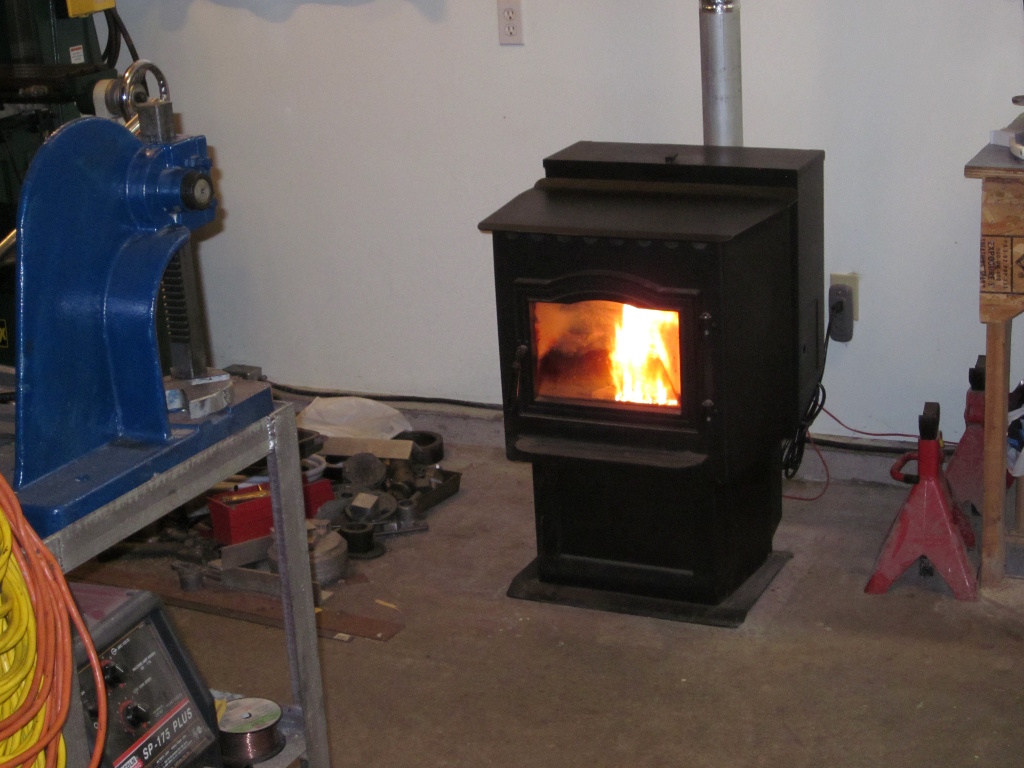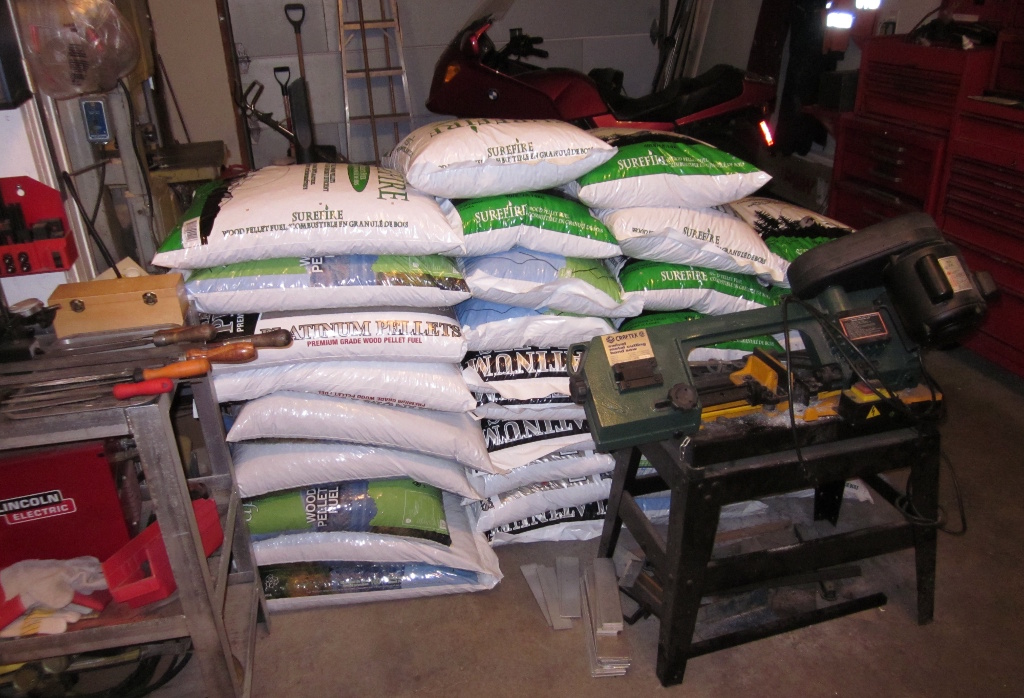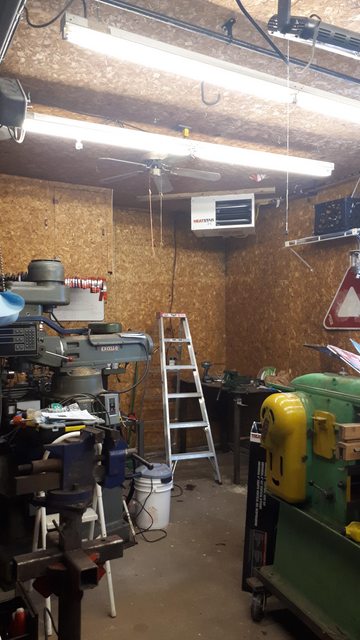That's how my saga ended with a Reznor 45K BTU. It has been good so far but has not even been a year yet.So we decided we going to get a Reznor UDX-45k BTU heater for the garage.
-
Scam Alert. Members are reminded to NOT send money to buy anything. Don't buy things remote and have it shipped - go get it yourself, pay in person, and take your equipment with you. Scammers have burned people on this forum. Urgency, secrecy, excuses, selling for friend, newish members, FUD, are RED FLAGS. A video conference call is not adequate assurance. Face to face interactions are required. Please report suspicions to the forum admins. Stay Safe - anyone can get scammed.
-
Several Regions have held meetups already, but others are being planned or are evaluating the interest. The Calgary Area Meetup is set for Saturday July 12th at 10am. The signup thread is here! Arbutus has also explored interest in a Fraser Valley meetup but it seems members either missed his thread or had other plans. Let him know if you are interested in a meetup later in the year by posting here! Slowpoke is trying to pull together an Ottawa area meetup later this summer. No date has been selected yet, so let him know if you are interested here! We are not aware of any other meetups being planned this year. If you are interested in doing something in your area, let everyone know and make it happen! Meetups are a great way to make new machining friends and get hands on help in your area. Don’t be shy, sign up and come, or plan your own meetup!
You are using an out of date browser. It may not display this or other websites correctly.
You should upgrade or use an alternative browser.
You should upgrade or use an alternative browser.
Shop Recommendations for warming up cold garage in winter
Shop
Canadium
Ian
I knew a fellow who had “almost” finished his workshop insulation. So he started up a heater to make it comfortable and left it on. His next bill was $500 more…
The whole point as I see it is not personal comfort but rather preventing machines from rusting. To accomplish this the shop has to be heated 24/7 thru winter months and not just when we want to work there. Otherwise machinery iron gets cold, attracts condensation when things warm up again and voila rusting machinery happens. Maybe not necessary to heat as much as a home but still above ambient maximum temperatures.
This is the beauty of basement shops. They benefit from the climate control already built into the house. An unheated outbuilding on the other hand is going to be a bear.
DPittman
Ultra Member
And of course it really depends on your climate also. My shop has never froze inside, I put the thermostat down every night and the lowest it ever gets is about 4-5 °C but as soon as I want to be in it I crank it to 18-20°C. With that daily fluctuation in temp, condensation has never been an issue but I live in a relatively dry climate.The whole point as I see it is not personal comfort but rather preventing machines from rusting. To accomplish this the shop has to be heated 24/7 thru winter months and not just when we want to work there. Otherwise machinery iron gets cold, attracts condensation when things warm up again and voila rusting machinery happens. Maybe not necessary to heat as much as a home but still above ambient maximum temperatures.
This is the beauty of basement shops. They benefit from the climate control already built into the house. An unheated outbuilding on the other hand is going to be a bear.
And of course it really depends on your climate also.
A few years ago we installed a ductless heat pump, 18k btu head for the house and 9k btu head for the garage/shop. I leave the shop at 13C and even in our humid climate have never had an issue. Having said that the humidity still doesn't compare to southern Ontario where in the summer you get out of the shower and dry off,,,,, and dry off,,,,,, and dry of until the next shower.
terry_g
Ultra Member
I live in a very damp high humidity area. I have a pellet stove in my shop. The stove operates off a wall thermostat.
I keep it set to 5 degrees most of the time turning it up to 15 degrees when I am out there. If the outside temperature drops below -20 I will leave a 1500 watt electric cube heater running on low. Twenty plus years and I have no rust problems at all with any of my tools or machines.
I keep it set to 5 degrees most of the time turning it up to 15 degrees when I am out there. If the outside temperature drops below -20 I will leave a 1500 watt electric cube heater running on low. Twenty plus years and I have no rust problems at all with any of my tools or machines.
Canadium
Ian
I live in a very damp high humidity area. I have a pellet stove in my shop. The stove operates off a wall thermostat.
I keep it set to 5 degrees most of the time turning it up to 15 degrees when I am out there. If the outside temperature drops below -20 I will leave a 1500 watt electric cube heater running on low. Twenty plus years and I have no rust problems at all with any of my tools or machines.
Not familiar with pellet stoves at all. Are they expensive? Don't you have to manually keep feeding them pellets? Do you have to worry about CO2 or CO poisoning?
terry_g
Ultra Member
Pellet stoves are safe as long as they and the chimney are in good condition. The chimney is insulated and galvanized outside and stainless inside. The stove holds a 40lb bag of pellets and that will heat the shop with me working out there in the evenings for three or four days when its -10 out.
The stove:

30 bags of pellets at $6.99 a bag, three months worth depending how cold it gets. I buy pellets by the bag, if you buy them by the ton 50 bags there is a cost saving.

The stove:

30 bags of pellets at $6.99 a bag, three months worth depending how cold it gets. I buy pellets by the bag, if you buy them by the ton 50 bags there is a cost saving.

The whole point as I see it is not personal comfort but rather preventing machines from rusting. To accomplish this the shop has to be heated 24/7 thru winter months and not just when we want to work there. Otherwise machinery iron gets cold, attracts condensation when things warm up again and voila rusting machinery happens. Maybe not necessary to heat as much as a home but still above ambient maximum temperatures.
Agreed, but I would extend it to spring and fall as well. As you point out its the temp swings that mess you up and that holds true for a good part of the year. I also run a dehumidifier in the summer spring and fall and keep all the good tools boxed or in drawers. imo that makes a huge difference is there isn't a great column above the tool for the dew to fall out of. With all that, no rust issues in my shop.
Mine is solid brick so insulating would mean building walls. Didn't want the effort or loss of space. 2" blue Styrofoam stuck to the garage door and two 1500 watt electric heaters and its mostly good. In the worst of the cold, I do plug in an electric space heater to the welding plug. That's TO of course, -40C in Prairies needs a different solution. (I'm thinking a good book, roaring fire and some single malt)
I do it for comfort as well, after all, its a hobby and is suppose to be fun. There is so much thermal mass in a machine they won't warm quickly and the whole schtick is a lot less pleasant with everything freezing.
Last edited:
@Xyphota - here is a thread dedicated to corrosion control. It's a very big thread but there is lots of great info in it that has been contributed to by many many members. Lots of both science and anecdotal data to assess and lots of debate too.
Thread 'Rust is the Enemy' https://canadianhobbymetalworkers.com/threads/rust-is-the-enemy.3607/
Personally, I feel like my equipment is way too valuable to gamble with corrosion control. Since I live in one of the worst corrosion belts in all of Canada, I am anal about controlling it.
I should really update that thread with the VCI assessment that @Dabbler and I did a while back. Suffice to say here that we didn't find that VCI Control was really viable in a large space like a shop and certainly not outdoors. It doesn't lend itself to use on exposed surfaces like mill tables either. However, it was reasonably effective in enclosed spaces like cabinets and drawers.
Let me also add here that temperature control alone is not sufficient to stop corrosion. In fact, contrary to popular opinion, the rate of corrosion goes up with increased temperature for most materials. The reason we typically experience less corrosion in heated spaces is not really the increased temperature, it's the fact that the relative humidity in a given space goes down as temperature goes up. That's also the reason I advocate a LITTLE air leakage in the winter. Cold air holds very little water. When you warm up that cold outside air, the relative humidity dives!
The most effective corrosion control is low relative humidity and regular applications of protective long lasting oil.
Thread 'Rust is the Enemy' https://canadianhobbymetalworkers.com/threads/rust-is-the-enemy.3607/
Personally, I feel like my equipment is way too valuable to gamble with corrosion control. Since I live in one of the worst corrosion belts in all of Canada, I am anal about controlling it.
I should really update that thread with the VCI assessment that @Dabbler and I did a while back. Suffice to say here that we didn't find that VCI Control was really viable in a large space like a shop and certainly not outdoors. It doesn't lend itself to use on exposed surfaces like mill tables either. However, it was reasonably effective in enclosed spaces like cabinets and drawers.
Let me also add here that temperature control alone is not sufficient to stop corrosion. In fact, contrary to popular opinion, the rate of corrosion goes up with increased temperature for most materials. The reason we typically experience less corrosion in heated spaces is not really the increased temperature, it's the fact that the relative humidity in a given space goes down as temperature goes up. That's also the reason I advocate a LITTLE air leakage in the winter. Cold air holds very little water. When you warm up that cold outside air, the relative humidity dives!
The most effective corrosion control is low relative humidity and regular applications of protective long lasting oil.
Last edited:
little ol' e
Jus' a hobby guy
I'm not really sure if this borders on teenager abuse but, when my kids get fired up with me.... I send them to the garage, that warms it up a bit.
Dan Dubeau
Ultra Member

That up there in the corner was probably the best investment I ever made for the shop (attached single car garage). My walls and ceiling are insulated, garage door is but is older, and the 2 wood man (people?) doors should be replaced with better insulated ones (I've been meaning to get to it.....). That said, all last winter I kept the shop around 7-8 degrees, and turned it up when I was working out there. It doesn't take long for it to heat up to comfortable working temp, and none of the machines or tools were cold to work on. It holds the heat pretty well, but I know I'm losing a lot to the doors and window. I didn't really notice a big jump in my propane usage, but the prices did skyrocket last year anyway. Whatever the increase, it was worth it for the extra gain of function.
We've been here since 2010. I want to travel back in time and shake myself for not doing it sooner. lol.
Gearhead88
Ultra Member
My shop has an old unit heater I got used. It needed a gas valve , a transformer , a thermocouple and a fan so, right from the beginning it was a project requiring some parts before it could be installed .
I've lived here since the winter of 2000 , a short time later that year I added some wall recepticles , lighting and installed insulation & drywall , the roof had allready been insulated by the previous owner. The unit heater went in before the winter of 2001 . I used to have a programable thermostat and could select the temps or the times when it would bring the temp up , it would never go below 38 degrees . I never really used or needed programable features and would just manually set it to warm the shop when I was out there and dialed it back when I went back in the house. Last year I replaced the thermostat with a basic unit , since I always manually changed the settings . I never let it get below 42 degrees . There has never been a problem with condensation , rust or damage to any of my junk from cold , this is Alberta , it's dry here in the winter , in the house we use a humidifier and we have lots of house plants to keep the humidity at a comfortable level . I have a couple of hygrometers in the house to moniter humidity . When you moniter and regulate the humidity it helps you sleep better , breathe better and to protect my music gear collection that would otherwise be damaged due to dry air.
![IMG_2416[1].JPG IMG_2416[1].JPG](https://canadianhobbymetalworkers.com/data/attachments/35/35358-fd4c4a6516287343cd1cd157e6da230a.jpg?hash=eCPzoGSWx_)
I've lived here since the winter of 2000 , a short time later that year I added some wall recepticles , lighting and installed insulation & drywall , the roof had allready been insulated by the previous owner. The unit heater went in before the winter of 2001 . I used to have a programable thermostat and could select the temps or the times when it would bring the temp up , it would never go below 38 degrees . I never really used or needed programable features and would just manually set it to warm the shop when I was out there and dialed it back when I went back in the house. Last year I replaced the thermostat with a basic unit , since I always manually changed the settings . I never let it get below 42 degrees . There has never been a problem with condensation , rust or damage to any of my junk from cold , this is Alberta , it's dry here in the winter , in the house we use a humidifier and we have lots of house plants to keep the humidity at a comfortable level . I have a couple of hygrometers in the house to moniter humidity . When you moniter and regulate the humidity it helps you sleep better , breathe better and to protect my music gear collection that would otherwise be damaged due to dry air.
![IMG_2416[1].JPG IMG_2416[1].JPG](https://canadianhobbymetalworkers.com/data/attachments/35/35358-fd4c4a6516287343cd1cd157e6da230a.jpg?hash=eCPzoGSWx_)
Last edited:
Tom O
Ultra Member
What I hate is the whistling wind when it blows through the garage doors on the ends it’s not often I open the doors so what I do is cut thin wooden wedges and place them between the rail and roller where needed taking up the play in between stopping the colder wind that robs my heat. I should make a sign to hang on the latch saying remove wedges though just for the son.
I bought actual garage door weatherstripping, the bristle kind. Night and day differenceWhat I hate is the whistling wind when it blows through the garage doors on the ends it’s not often I open the doors so what I do is cut thin wooden wedges and place them between the rail and roller where needed taking up the play in between stopping the colder wind that robs my heat. I should make a sign to hang on the latch saying remove wedges though just for the son.
I’m not trying to be funny- a garage door supply company. Mine the bristles are 3-4” long and just get screwed on the jambI haven’t seen that type where did you get it from?
What I hate is the whistling wind when it blows through the garage doors on the ends it’s not often I open the doors so what I do is cut thin wooden wedges and place them between the rail and roller where needed taking up the play in between stopping the colder wind that robs my heat. I should make a sign to hang on the latch saying remove wedges though just for the son.
It does rob your heat, but a little cold dry air is actually a very good thing from a corrosion perspective.
Just to add options, my doors have double "rubber" seal strips that do a good job of keeping air and water from passing. They are mounted on the jamb outside and slide on the face of the door as it goes up/down.I bought actual garage door weatherstripping, the bristle kind. Night and day difference
D
